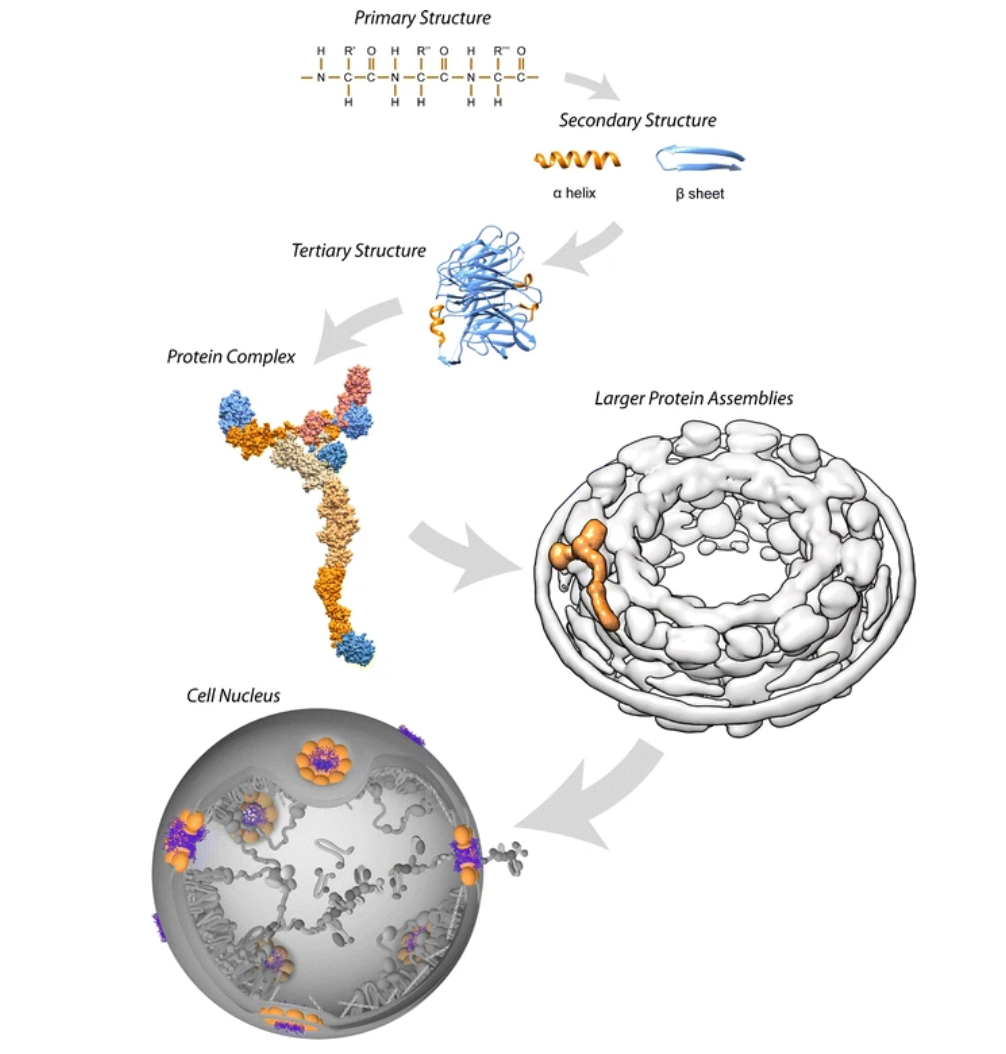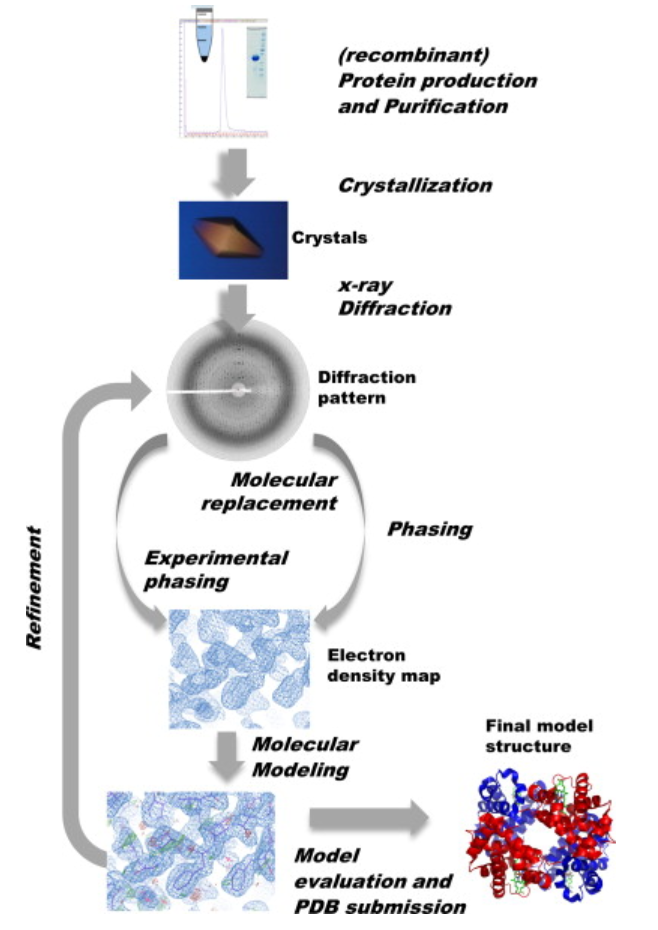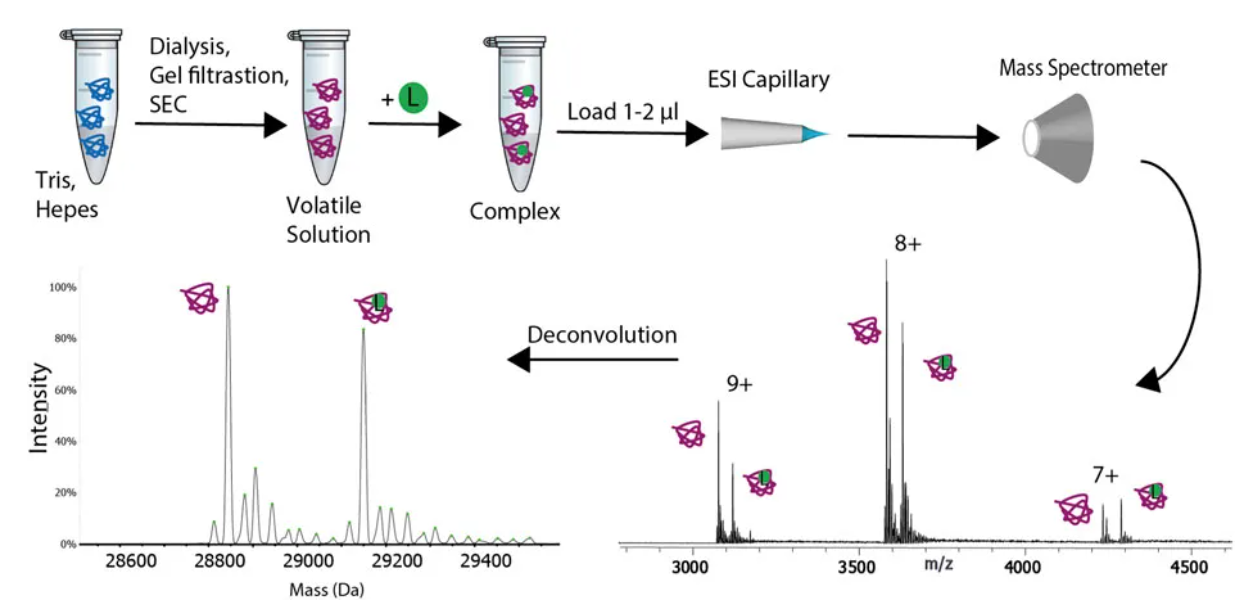Protein Conformation Analysis Service
Protein conformation refers to the unique three-dimensional arrangement of amino acids in a protein molecule, determining its biological function, stability, and interactions. These conformational states are not static but highly dynamic, undergoing subtle or significant changes in response to environmental factors, ligand binding, or post-translational modifications. Misfolding or aberrant conformations can lead to severe diseases, including Alzheimer’s, Parkinson’s, and various cancers. Therefore, understanding protein conformation is fundamental to uncovering disease mechanisms, designing effective drugs, and advancing structural biology. The Protein Conformation Analysis Service focuses on deciphering these structural intricacies, offering insights into protein folding, dynamics, and stability at an atomic level. The Protein Conformation Analysis Service bridges the gap between structural observations and functional understanding, enabling researchers to pinpoint critical conformational changes that influence biological pathways and therapeutic targets.

Figure 1. Protein Conformation within Cells
Service at MtoZ Biolabs
To address the challenges of studying dynamic and heterogeneous protein structures, MtoZ Biolabs introduces the Protein Conformation Analysis Service that employs a combination of advanced mass spectrometry-based techniques and structural biology tools. Protein Conformation Analysis Service combines methods such as X-ray Crystallography, Cryo-Electron Microscopy (Cryo-EM), Nuclear Magnetic Resonance (NMR) Spectroscopy, Hydrogen-Deuterium Exchange Mass Spectrometry (HDX-MS), Cross-Linking Mass Spectrometry (XL-MS), Native Mass Spectrometry and more. Additionally, Circular Dichroism (CD) Spectroscopy, Fluorescence Spectroscopy, and Isothermal Titration Calorimetry (ITC) are utilized to study protein folding, stability, and binding thermodynamics. By integrating these methodologies with bioinformatics-driven analysis, the Protein Conformation Analysis Service delivers comprehensive data on protein folding, ligand binding, protein-protein interactions, and structural stability. This multidisciplinary approach ensures accurate, reproducible, and biologically relevant results, positioning the Protein Conformation Analysis Service as a powerful tool for advancing structural biology research, drug discovery, and therapeutic protein design.

Figure 2. X-ray Crystallographic Workflow

Gavriilidou, A. F. M. et al. Front Mol Biosci. 2022.
Figure 3. Schematic Representation of the Experimental Procedure for Native Mass Spectrometry
Service Advantages
1. Advanced Analysis Platform: MtoZ Biolabs established an advanced Protein Conformation Analysis Service platform, guaranteeing reliable, fast, and highly accurate analysis service.
2. Multi-Level Structural Resolution: The Protein Conformation Analysis Service investigates protein structures across secondary, tertiary, and quaternary levels, providing a comprehensive understanding of folding patterns, spatial arrangements, and subunit interactions. This multi-level approach ensures detailed insights into protein functionality and stability.
3. Dynamic Structural Monitoring: Real-time observation of protein conformational transitions under native-like conditions allows accurate characterization of structural changes caused by environmental factors, ligand binding, or mutations, supporting functional and mechanistic studies.
4. One-Time-Charge: Our pricing is transparent, no hidden fees or additional costs.
5. High-Data-Quality: Deep data coverage with strict data quality control. AI-powered bioinformatics platform integrates all Protein Conformation Analysis Service data, providing clients with a comprehensive data report.
Applications
1. Drug Discovery and Development
The Protein Conformation Analysis Service helps identify conformational changes upon ligand binding, providing essential data for structure-based drug design and lead optimization. It ensures that therapeutic molecules interact precisely with their target proteins, enhancing efficacy and minimizing off-target effects.
2. Biopharmaceutical Quality Assessment
In the production of therapeutic proteins and monoclonal antibodies, maintaining structural stability is critical. Through the Protein Conformation Analysis Service, structural integrity, aggregation risks, and post-translational modifications are monitored to ensure consistent product quality.
3. Disease Mechanism Research
Protein misfolding and aggregation are associated with diseases like Alzheimer's and Parkinson's. The Protein Conformation Analysis Service enables researchers to study these conformational abnormalities, revealing critical insights into disease mechanisms and potential therapeutic targets.
4. Protein-Protein Interaction Studies
Mapping protein-protein interfaces and conformational changes during complex formation is essential for understanding cellular pathways. The Protein Conformation Analysis Service enables precise analysis of these interactions in both native and dynamic states.
Deliverables
1. Comprehensive Experimental Details
2. Materials, Instruments, and Methods
3. Total Ion Chromatogram & Quality Control Assessment (project-dependent)
4. Data Analysis, Preprocessing, and Estimation (project-dependent)
5. Bioinformatics Analysis
6. Raw Data Files
For more information about our Protein Conformation Analysis Service, please contact us.
How to order?







